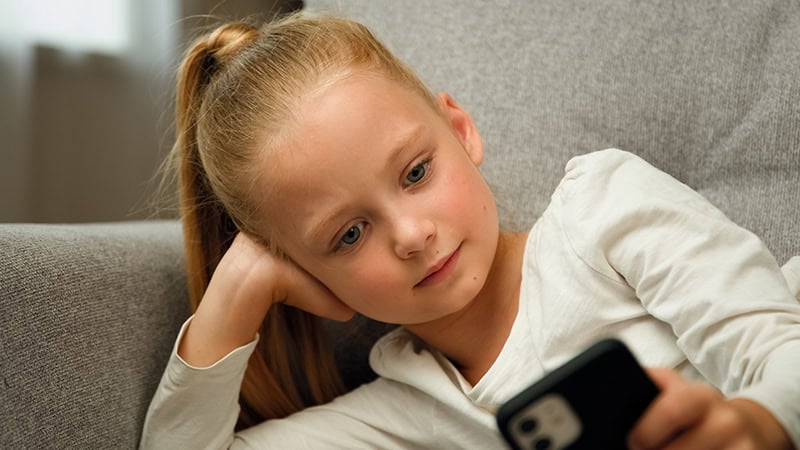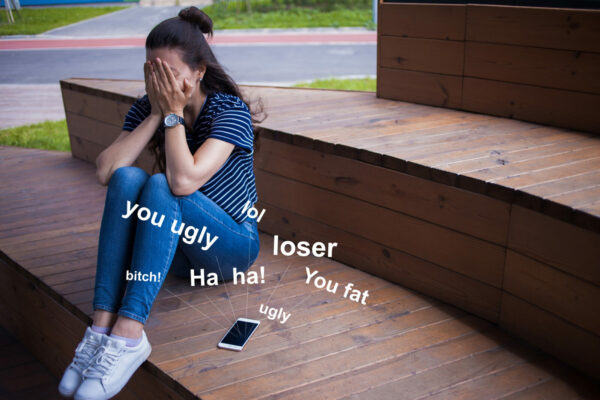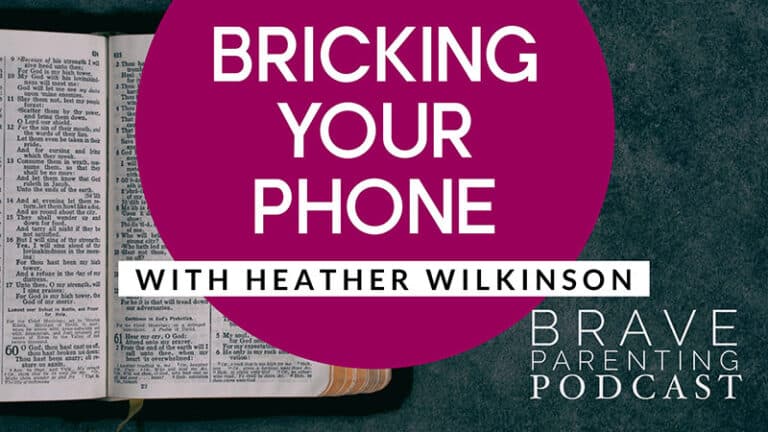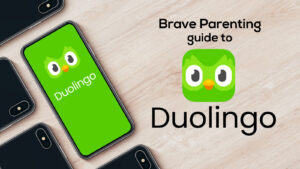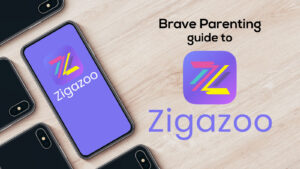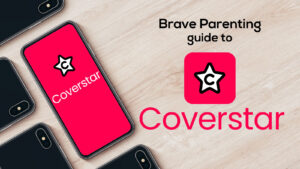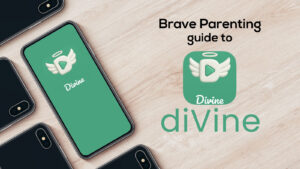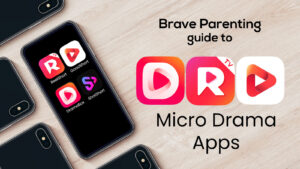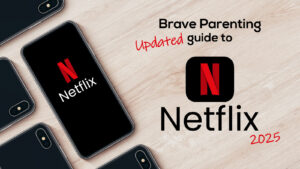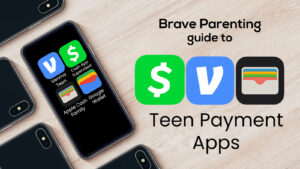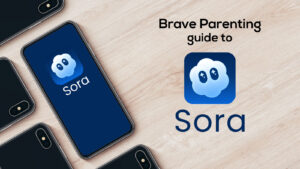American Surgeon General Vivek Murthy gave this statement while discussing the “loneliness epidemic” on CNN:
“I, personally, based on the data I’ve seen, believe that 13 is too early … It’s a time where it’s really important for us to be thoughtful about what’s going into how they think about their own self-worth and their relationships and the skewed and often distorted environment of social media often does a disservice to many of those children…”
On May 23, 2023, Dr. Murthy released a public Advisory declaring that there is not enough evidence that social media is safe for kids and that our kids don’t have the luxury of waiting around for the research to prove conclusive one way or the other. Therefore, the way it is now cannot – should not – remain the same.
The Wall Street Journal published an article by Julie Jargon on June 10, 2023, where she provides reasons why 16 should be the minimum age for social media use. The exact reasons and evidence that Brave Parenting has been saying age 16 for the last decade (minus the biblical and ethical reasons we would not expect to see in the Wall Street Journal anyway).
Why Haven’t Parents Learned?
Some parents have stood firm and resisted social media. Some parents allowed social media at one point, regretted it, and walked it back to a ‘not quite yet.’ Unfortunately, many parents cannot muster up the bravery to say no. Or worse, they want their kids to have social media so that they can gain popularity, fame, and/or money. Or to not distract them – which is perhaps the worst of all scenarios.
As long as there are dissenting opinions among parents regarding social media, there will always remain social and peer pressure amongst kids to have social media. Our sinful nature loves to covet, so when some kids have it, others will desire it because they see what their peers have. This is not a new phenomenon, but coveting is a sin that causes actual destruction in one’s life.
In light of the Surgeon General’s Advisory, the government’s new motivation to ban specific platforms and for use without parental consent, and the WSJ’s acquiescence to a minimum age, we have to ask: why is there still a massive weakening of parents’ wills?
The inability of parents to say no when their child asks for something that has amassed a ton of concern regarding its safety seems surreal. Why do so many parents ignore the perpetual and heartbreaking statistics, the stories about depression, anxiety, loneliness, suicide, bullying, predation, pornography, and completely ungodly and unholy influences regarding social media?
Is it because their children are the exception? Is it the “not my kid” mentality?
Your Responsibility
If you knew a 12-year-old planned to drink alcohol, then get behind the wheel and drive – and you didn’t stop them, it would be negligence or abuse. Why? Because the child would likely hurt themselves and others! It is your responsibility as the parent and as the adult to mitigate risk. You could try to rationalize: maybe they’ll be okay – it’s possible nothing tragic will happen. But this is foolishness because the chances are far greater that harm is imminent.
Dr. Murthy has confirmed that the same is true about children and social media.
Perhaps you refute this metaphor because alcohol and driving have legal age limits. Therefore, the child should know better, and you have no personal responsibility.
But what if everyone around them behaves in this same way – drinking and driving at 12 – can we expect them to know better? After all, social media platforms have age requirements, and parents should know better than to ignore them – but alas, when parents were polled, 49% reported their children ages 10-12, and 32% of children ages 7-9 were using social media!
What are these many children doing on social media when science, research, and anecdotal evidence of its dangers are everywhere? Is it that parents don’t care about their kid’s growing mental, emotional, and spiritual health? Is it a “not my kid” assumption regarding the risks? Or, do parents just want their kids to be happy and entertained now and aren’t thinking about any future consequences?
Are these parents thinking, “Maybe they’ll be okay – it is possible nothing tragic will happen”?
The Answer
“If parents can band together and say, as a group, we’re not going to allow our kids to use social media until 16 or 17 or 18 or whatever age they choose, that’s a much more effective strategy in making sure your kids don’t get exposed to harm early.”
Dr. Murthy is correct; we know this because we’ve seen it work firsthand. Brave Parenting has stood by the expectation of Social@16. No social media and no open social communication on video games until the age of 16. The character strength and virtue of this boundary/expectation, as discussed in Kelly’s book Managing Media Creating Character is self-worth. This is precisely what Dr. Murthy states is being skewed or even lost.
Why 16?
This isn’t an arbitrary number. This age has been a turning point of maturity for a century. Age 16 is when, as a modern society, we recognize they are mature enough to drive a car and get a job. The frontal lobe of the brain is developed enough to succeed at these tasks. Not only that, but research has also shown the risk factors for depression, anxiety, and suicide associated with social media are significantly less at age 16 than at age 13.
Dr. Murthy used the phrase “exposed to harm early.” It is not difficult to see the potential harm and negative influence that can occur with early exposure to online content designed for adults.
Early is not just elementary school; early is everything under 16.
Ban Together
One of the Surgeon General’s recommendations was for groups of parents to ban together, committing to holding off on social media until after age 16. Whether this is a group of family members, classroom parents, sports team parents, or parents of a friend group – there is great strength in numbers.
Deciding as a group when you will allow social media is liberating! It is a decision you make in advance so that, in the moment, you never have to question or second-guess where you stand. The decision is made, and no amount of whining, justifying, or temptation will lead you to cave because other parents are counting on you to hold fast.
Sure, there will always be the chance that every parent around you has caved, and you are the lone ranger. We at Brave Parenting have got your back. We are parents like you, fighting the good fight, doing the hard work of limiting online exposure, and discipling our kids to have a Biblical worldview. Ban with us. Read our book, start a small group, do the study guide together, subscribe to our podcast, and sign up for our email newsletter.
Be Brave
Parents, it’s on us. Dr. Murthy is calling for Tech companies to set their own and better standards, but, again, our children don’t have the luxury of waiting around for that to happen. We must protect children’s development by staving off online content and influence that destroys innocence, skews self-worth, and sets them up for mental health disorders.
We have long sought to answer the question: Is social media redeemable? Even acknowledging the benefits to people who use social media wisely and discernibly, we do not believe it is redeemable for children or young teenagers. The nature of social media and sinful mankind is too much for an adolescent brain. Moreover, would new laws prohibiting those under 16 from using it change anything? Maybe a little, but considering how many parents are already ignoring the age expectation of 13, the trend will continue.
It’s no one else’s responsibility but the parents. Right now is the time to draw a line in the sand. Gather your community and do it together. Be brave – commit to holding off on social media until (at the earliest) age 16.
Additional Resources:
Articles on Social Media:
What is Lost With Early & Frequent Use of Social Media
How to Wean Your Child Off Social Media
Love is Not an Unrestricted Phone
How to Deactivate/Delete Social Media Accounts
Post. Shame. Delete. Repeat. The Way Social Media is Changing Teen Friendships
Dear Youth Pastor on Snapchat
The Instagram Games Girls Play (And Why the Answer is No)
Four Lies Your Teen Wants You to Believe About Social Media
#Flawless: How a Hashtag is Destroying Our Daughters
The Key Difference Between Self & Selfie
Should Girls Have More Restricted Social Media Than Boys?
Podcasts on Social Media:
Are We Failing Girls?
Research Proves Parents Just Need to Be Brave (and Restrict)
Content Driven Life
Our Critique of APA’s Recommendations for Adolescent Social Media Use
Social Media Reform: Through Government or Parents?
Big Tech & Sexual Exploitation
Constant Companion
Surgeon General Warning: Social Media is Harmful to Your Mental Health
Youth Pastors, Social Media, & “Friends”
Why 41 States Are Suing Meta
Social Media in News Headlines
Teen Instagram Accounts & Gorilla “Screen Time”
Christians & Social Media: An 18 Year Old’s POV
5 Myths We Believe About Social Media
Podcasts on TikTok Specifically:
TikTok Doesn’t Really Care About Your Kids
TikTok Influencers & The Shaping of Kids’ Ideologies
Tiktok’s Algorithm, Consumerism, & Fame
Talking About TikTok with Kids
TikTok Announces 60-Minute Time Limit for Under 18
TikTok Trend: Dopamine Detoxing
TikTok Influencers Admit Their Own Lies

